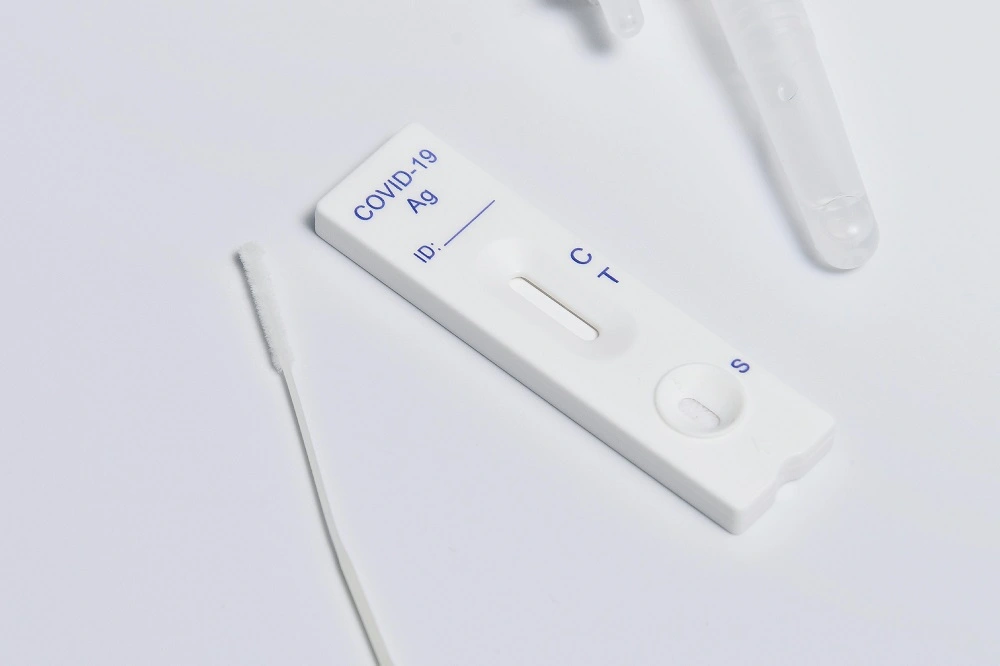The accuracy of COVID test results hinges on the strategic timing of testing, which is influenced by various factors such as viral incubation periods and testing sensitivities.
Here’s all you need to know about the best time to get tested for COVID-19.
Who should get tested?
If you’re exhibiting COVID-19 symptoms or have had close contact with someone diagnosed with COVID-19, especially within the last 14 days, you should promptly seek testing.
These symptoms include:
- Fever
- Cough
- Shortness of breath
- Fatigue
- Loss of taste or smell
- Body aches
When is the best time to do a rapid antigen test?
It’s recommended to perform a rapid antigen test within the first 5 to 7 days after your COVID exposure. This timeframe allows for the test to capture potential viral presence during the early stages of infection when viral loads are typically higher and more detectable.
While testing, keep in mind that rapid antigen tests may have reduced sensitivity in detecting certain variants like Omicron, particularly in vaccinated individuals.
If your initial antigen test result is negative yet you continue to feel COVID symptoms, it’s wise to follow up with a polymerase chain reaction (PCR) test for an accurate diagnosis of your condition.
How soon might COVID symptoms appear?
The incubation period for COVID-19, which is the time from exposure to the virus to the onset of symptoms, is usually around 2 to 14 days, with most people developing symptoms around 4 to 5 days after exposure.
However, some people may remain asymptomatic but still be contagious to others.
How often should you test for COVID-19?
The frequency of testing after COVID exposure depends on various factors such as:
- Level of exposure
- Vaccination status
- Presence of symptoms
Even if you’re vaccinated, consider regular testing, especially if you’re experiencing any symptoms consistent with COVID-19 or have been in contact with someone infected.
Additionally, if you ’reworking in high-risk settings or are living in a community with a high transmission rate, you can also benefit from more frequent testing to monitor your COVID-19 status closely.
When should you call a doctor?
If symptoms persist, seek medical advice from your healthcare provider for timely intervention and appropriate care.
If you experience these symptoms, seek medical attention immediately:
- Difficulty breathing
- Persistent chest pain
- Confusion
- Bluish lips or face
- Severe fatigue
Frequently asked questions
What is the difference between antigen tests and PCR tests in terms of testing for COVID-19?
Antigen tests provide rapid results at home. However, PCR tests are lab-based tests that detect genetic material with high sensitivity and identify low virus levels. Antigen tests may be less effective initially in vaccinated individuals with Omicron.
Can rapid antigen tests accurately detect the Omicron variant in vaccinated individuals?
Rapid antigen tests may not accurately detect the Omicron variant in vaccinated individuals initially due to its behavior resembling a cold virus. PCR tests are recommended to accurately identify these variants, especially in vaccinated populations.
Is there a specific group of people who are recommended to get tested more frequently for COVID-19?
Frequent testing for COVID-19 is recommended for high-risk individuals, healthcare workers and those in close contact with infected individuals. Regular testing helps in early detection, containment and prevention of further spread of the virus.
If I experience mild symptoms that could be COVID-19, when should I consult a doctor for further guidance and testing?
If you’re experiencing mild symptoms potentially indicative of COVID-19, you may consult your healthcare provider at any time. Early medical evaluation can help determine the appropriate course of action, including testing and potential isolation measures.
Key takeaway
Testing after COVID exposure is crucial to identify and prevent unknowingly spreading the virus. If you’re exposed to the COVID-19 virus, it’s helpful to take a rapid antigen test within 5 to 7 days and continue to implement safety measures for you and the people around you.




















































